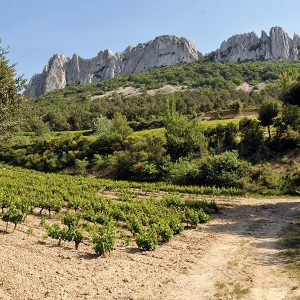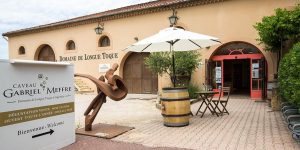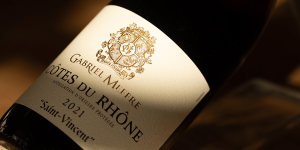A cork for every wine
The first step consists of identifying the nature of each wine, factoring in its individual characteristics and storage requirements. For some wines, classic cork will be the recommended solution, while for others, the screw cap or plastic stopper will make the ideal closure. At our winery, we carry out tests and tastings to find the best stopper for each bottle. It’s a long but all important process to ensure our wines maintain their level of excellence.
As a general rule of thumb, natural corks will be used for vins de garde or ‘cellaring wines’. Screw caps for white, rosé and red wines to be enjoyed in their youth in order to preserve the crisp fruit aromas in the bottle.
Natural cork
Natural cork is the forefather of all corks since it was already sealing amphoras as far back as the 5th century AD. It is made from the bark harvested from the cork oak, a species of tree mainly growing in the Mediterranean area.
The quality of a cork will vary depending on its size. The longer the cork, the better the quality is likely to be since it will have been extracted from the best parts of the tree.
Our winery sources its cork from Portugal. For wines destined for a long time in the cellar, such as the Saint-Joseph Laurus, we employ the finest quality natural corks called ‘natural 0’, 49 mm in length. A cork producers charter has also been established to check their visual quality, size and other specifications.
My wine is corked
But what does that really mean? Cork can carry a molecule which can develop into ‘cork taint’. It’s for this reason that we regularly test the batches of corks we receive as well as the new closures we want to use. The process consists of macerating the corks in wine for several hours, then tasting the macerates. If the test is conclusive, i.e. no cork taste is detected during the tasting, the cork is kept.
The screw cap
French consumers have a poor image of this type of cork which is nevertheless widely employed on export markets and even in fine wines. However, it does offer a number of benefits!
Not everyone finds it easy to open a bottle with a corkscrew. The screw cap is easy to open and reuse to seal a bottle. Which is especially practical for restaurants–above all when serving wine by the glass–but for drinkers at home too.
Once opened, the bottle can be stored laying down with no risk of the wine leaking.
A screw cap prevents air and therefore oxygen from entering the bottle, which in turn means the producer can considerably reduce the quantity of sulphites added during bottling to avoid early oxidation of the wine.
A final benefit is the total and guaranteed absence of ‘cork taint’ which avoids huge disappointment when you take a bottle round to a friend’s house!
In short, this type of cork is ideal for wines that are not intended to be kept for a long time.
The final word from the House…
This new type of stopper is an alternative to the traditional cork. It’s made out of sugar cane residue and is 100% biodegradable which avoids the typical disadvantages associated with cork while ensuring our wines preserve their aromatic excellence and store well. As a responsible company, it’s entirely natural that we take an interest in this type of cork. We have been testing it out for the past 12 months and we have another six months to go… watch this space!
Rubrics
Découvrez plus d'articles...
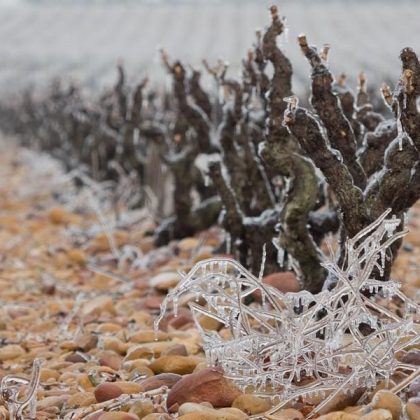
The vineyard and wine cellar in winter
What happens in the world of wine during the winter period? After the hustle and bustle of autumn, the harvests and vinification process, comes winter, a season devoted to maturation and looking after the vines.

In 2018, we will continue to strive to be a Responsible Company!
In this new year, our wish to help build a world that respects both mankind and the environment is as strong as ever. This can be seen through the number of our projects for 2018 that are closely related to our convictions as a Responsible Winery. We’re delighted to be given the opportunity to tell you about them!
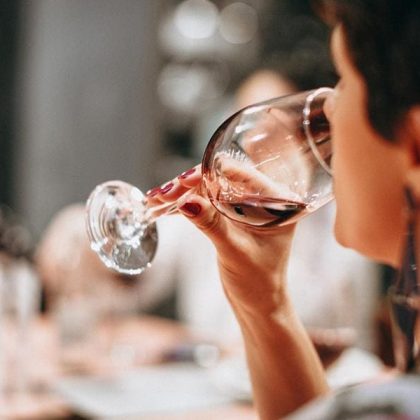
Discovering the art of pairing wine and chocolate
A morsel of white chocolate, Black Forest gâteau, pieces of stem ginger wrapped in chocolate, or Mexican chicken in chocolate sauce—all very appetising, but which wine would you serve with each one? Food and wine pairings factor in a combination of elements, such as the terroir, our powers of concentration, the circumstances of the tasting session, our sense memory and more. We guide you through some of the basic principles of this fascinating world!
